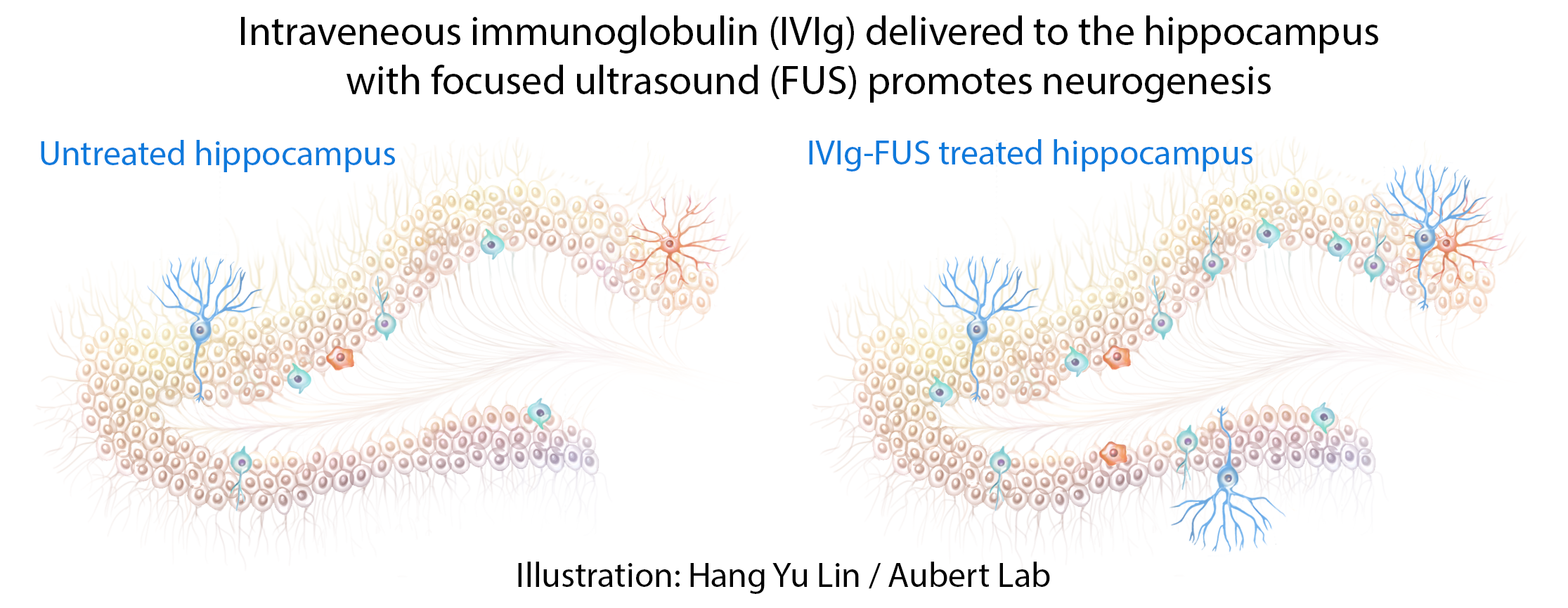 A newly published preclinical study – “Clinically Approved IVIg Delivered to the Hippocampus with Focused Ultrasound Promotes Neurogenesis in a Model of Alzheimer’s Disease“– led by Dr. Isabelle Aubert and her team at Sunnybrook Research Institute has demonstrated that using focused ultrasound plus microbubbles to increase the permeability of the blood-brain barrier (BBB) significantly improved the delivery of intravenous immunoglobulin (IVIg) to the brain, which reduced the plaques associated with Alzheimer’s disease and created measurable neuronal regeneration in the delivery brain area heavily involved in learning and memory.
A newly published preclinical study – “Clinically Approved IVIg Delivered to the Hippocampus with Focused Ultrasound Promotes Neurogenesis in a Model of Alzheimer’s Disease“– led by Dr. Isabelle Aubert and her team at Sunnybrook Research Institute has demonstrated that using focused ultrasound plus microbubbles to increase the permeability of the blood-brain barrier (BBB) significantly improved the delivery of intravenous immunoglobulin (IVIg) to the brain, which reduced the plaques associated with Alzheimer’s disease and created measurable neuronal regeneration in the delivery brain area heavily involved in learning and memory.
IVIg is an FDA-approved, antibody-based blood product that can reduce the amyloid pathology (plaque) in the brain that occurs in patients with Alzheimer’s disease. “We knew IVIg had potential for Alzheimer’s but, at the dosages used, it had failed to show significant improvement in clinical trials. We thought: how can we rescue it?” says Dr. Isabelle Aubert, Senior Scientist in the Hurvitz Brain Sciences Program at SRI and Canada Research Chair in Brain Repair and Regeneration. “How can we deliver more IVIg to the brain?”
Focused ultrasound might hold the clue. Using it to modulate the properties of the BBB allowed the researchers to deliver 489 ng/mg of IVIg to the target brain area using two treatments a week apart. While all treatment groups showed a significant reduction in amyloid plaque pathology, the group receiving the IVIg-focused ultrasound treatment was the only one that significantly promoted neuronal proliferation and survival. What is the next step for translation of these promising results? Stay tuned!
See the Proceedings of the National Academy of Sciences (PNAS) >
See the Sunnybrook Research Institute Press Release >
See Hang Yu Lin’s Animated BBB Opening Video and Read Her Profile >
See Media Coverage of this Story in Medical Xpress >
